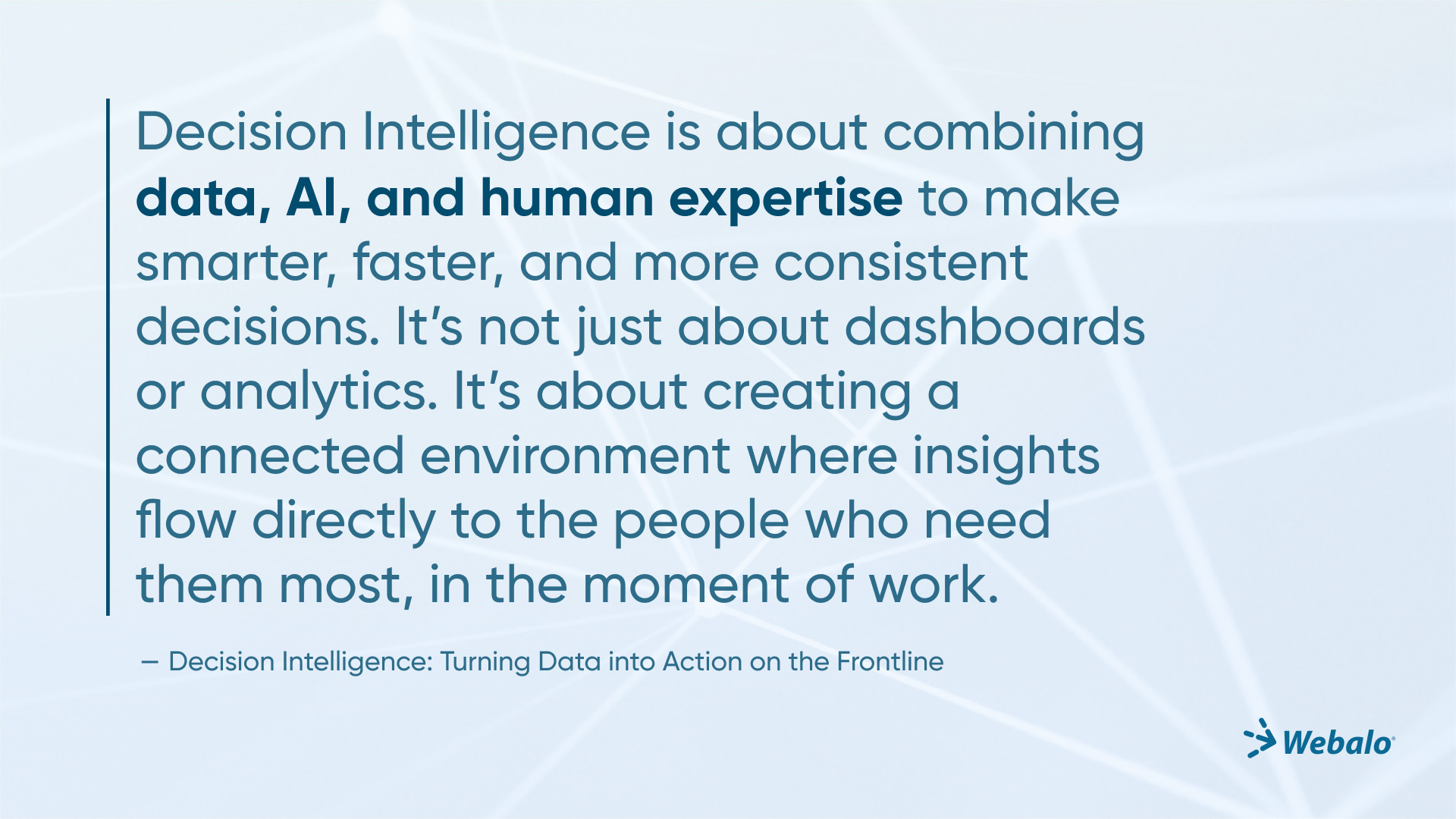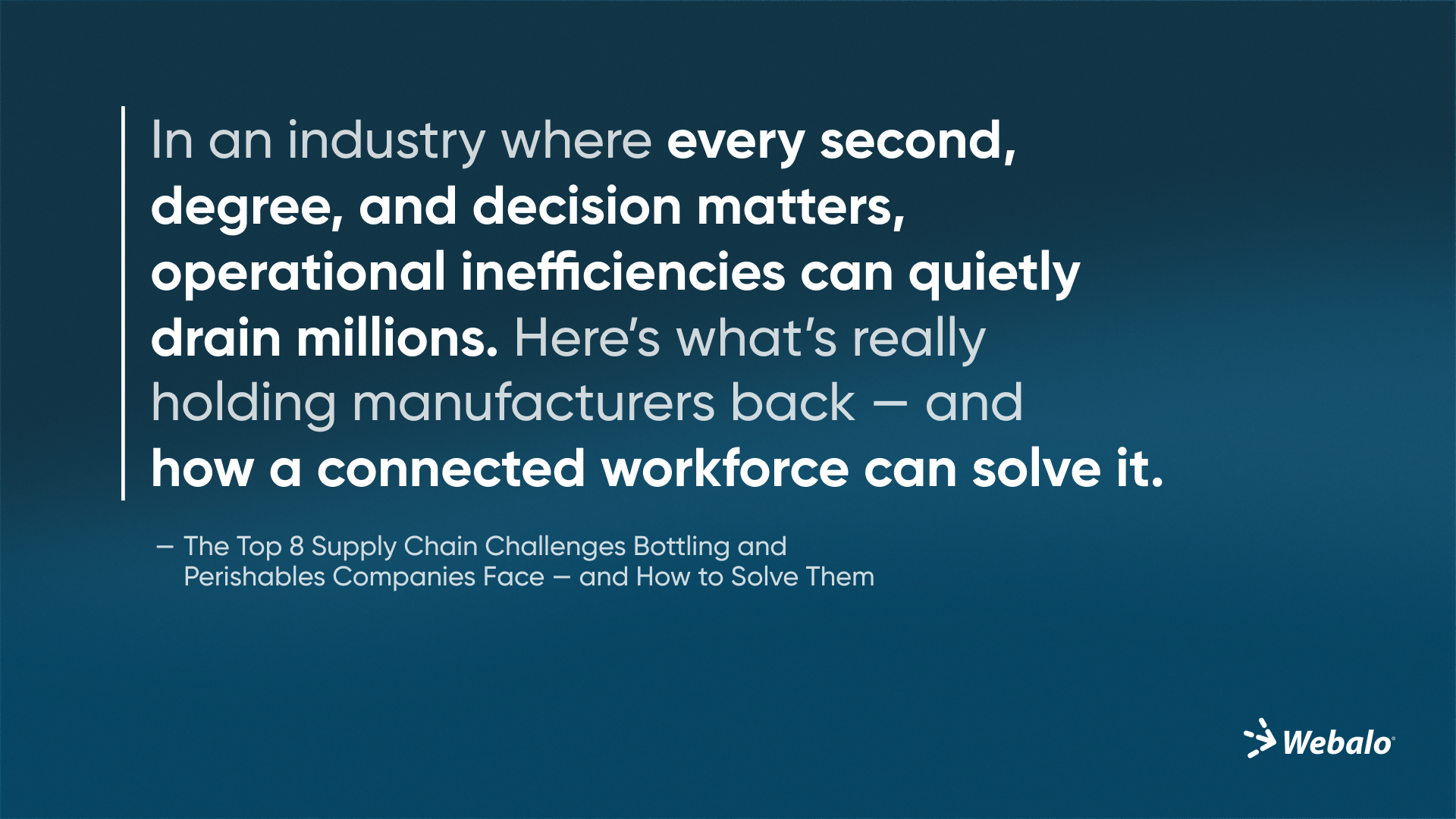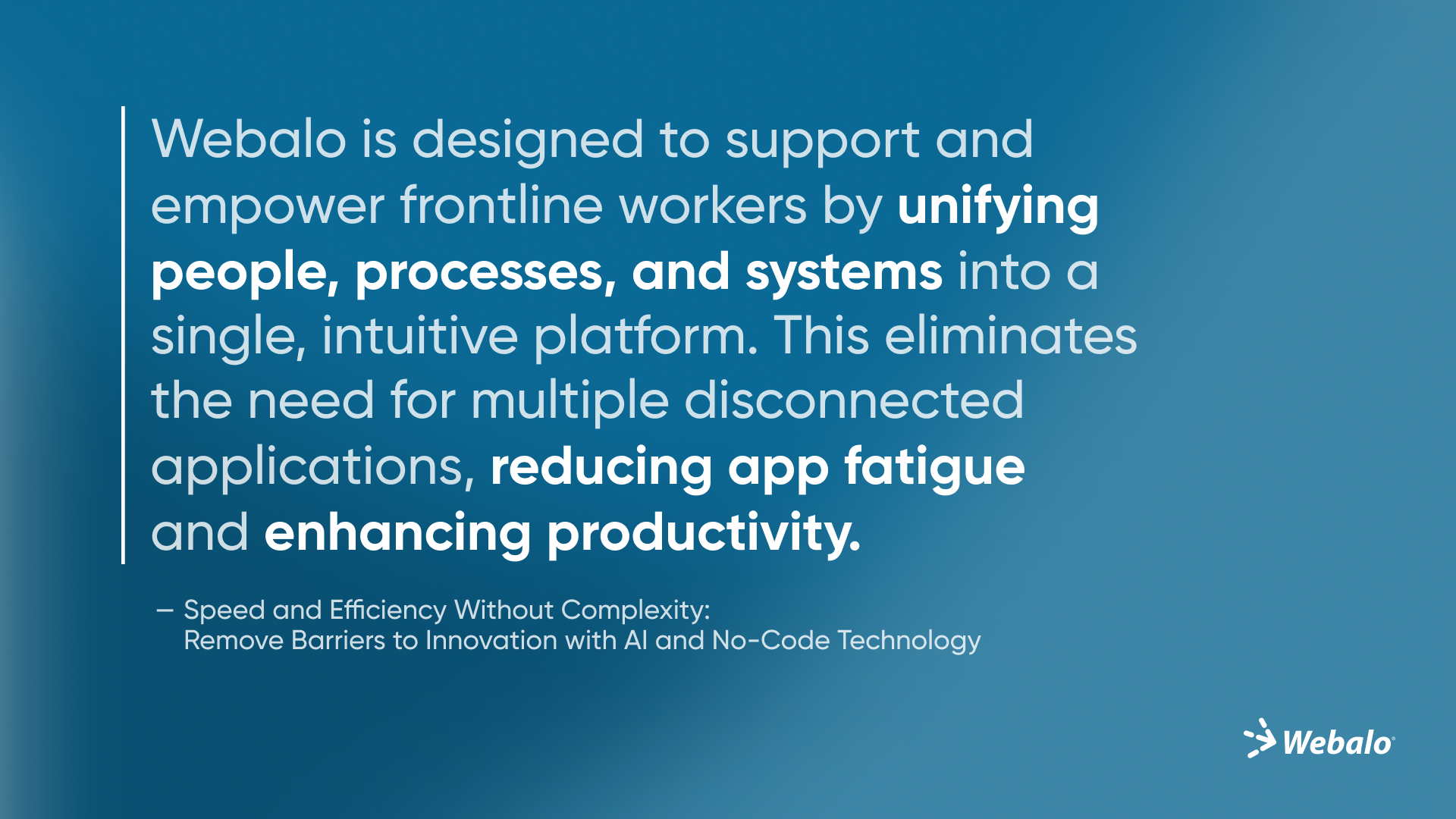Manufacturing operations run on decisions. From the smallest adjustment on a production line to the biggest investment in new equipment, every choice impacts productivity, quality, safety, and costs. But in many organizations, decision-making is slowed by disconnected data, delayed reporting, and manual processes.
That’s where Decision Intelligence comes in — and where Webalo makes it real for the frontline workforce.


